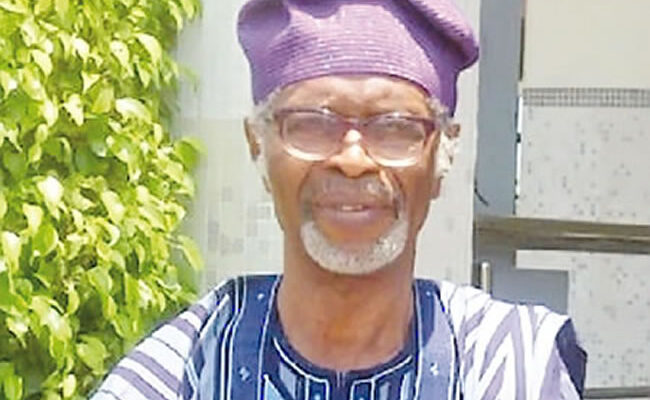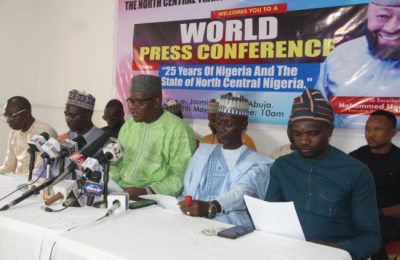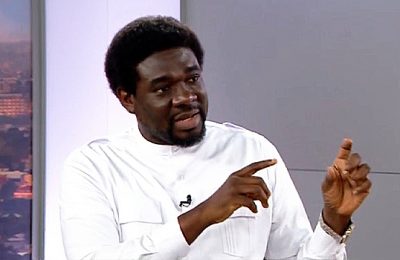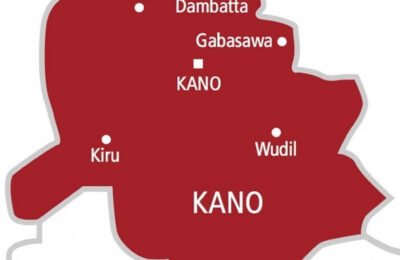Ambassador (Professor) Alaba Ogunsanwo is a renowned political scientist, diplomat and an elder statesman whose experience cuts across various epochs in the governance of Nigeria. The 81-year-old London School of Economics and Political Science, University of London graduate was at different times an Accounts Clerk at the Marketing Board of the defunct Western Region in Ibadan, a Political Science lecturer at the University of Ife now Obafemi Awolowo University, Ile Ife, and at the University of Lagos. He is currently a Professor of Political Science/International Relations at the Lead City University, Ibadan. He is a former Nigerian High Commissioner to Botswana; a former Nigerian Ambassador to Belgium. The Ijebu Mushin-born octogenarian shares his thoughts with DEPUTY EDITOR, DARE ADEKANMBI, on governance in Nigeria and what can be done to restore it to the path of growth and development as witnessed in what he called the golden era.
After almost 63 years of Independence and 24 years of uninterrupted civil rule, Nigeria, famously referred to as the giant of Africa, has not, in the view of many, lived up to that billing. What exactly do you consider the obstacles in the way of the country’s quest for real growth and development that will impact positively in the welfare of the citizenry?

I will try to answer this question by reminding us of the golden years of the country’s growth and development. The years that witnessed Nnamdi Azikiwe as Premier of the Eastern Region, Obafemi Awolowo in the Western Region, Ahmadu Bello, the Sardauna of Sokoto in the Northern Region and Tafawa Balewa as the Prime Minister under a constitutional arrangement that unleashed the creative ingenuity of the Nigerian people in an environment of healthy rivalry pointing to the emerging giant of Africa. That period would need to be recalled if we are to find answer to your first question.
The leadership provided under an agreed formula of a federal system with considerable devolution of power to the regions, revenue allocation formula with emphasis on derivation principle, freedom in the area employment and remuneration, enabled the different regions to mobilise and apply resources to achieve regional goals. The highest minimum wage of 7Shillings and 6Pence was paid by the government of the Western Region while the Federal Government and the Governments of Eastern and Northern Regions paid 5 shillings as the minimum wage.
In terms of growth and development, the Western Region was way ahead of the others and no one complained about the direction the country was going. The regional economies were based on cash crop production and exports of same. Cocoa, groundnuts, palm products, cotton and rubber provided the bulk of the revenue needed by the country. 1965 was the year that crude oil export represented, for the first time, the highest single revenue earner overtaking each of the cash crops. 1965 was also the last full year that Nigerian politicians would be in charge of power until October 1 1979 when power was returned to them under a different system of government—presidential. In between January 1966 and October 1 1979, a lot of water had passed under the bridge and we did not go back to the previous system of competitive healthy regional rivalry generating growth and development. For one thing, the regional players had increased from four regions to 19 states, with the number increasing in subsequent years to 21, 30 and 36 states with the adverse consequences for the configuration of power in a militarily tailored unitary system described as federal in the constitution but having no relationship to either the 1960 or 1963 Republican Constitution.

From my point of view, herein lies the principal reason for our inability to project Nigeria forward as a giant of Africa. The first major step that has to be taken is a serious devolution of power. It is the sine qua non of any progress we wish to make.

Some have blamed the structure of governance in the country as anti-development with huge amount of money spent on recurrent expenditure to service the insatiable pleasure of innumerable appointees and those feeding fat from unnecessary duplication of bureaucracies. Is this the only barrier to be removed?
The answer to this question of course is that it is not the only barrier that needs to be removed, but it is a necessary one. Unfortunately, it cannot be removed without triggering a counter revolution from those to be negatively affected who we cannot expect to stand akimbo and pusillanimously surrender their gains under the current system. You must realize that reactionary forces on the verge of extinction invariably conduct desperate struggles and therefore they are very dangerous. The multidimensional hydra-headed parasitic elite members whose interests are intertwined with this group will ensure that any attempt to effect any meaningful change will be sabotaged. This we must take into account in whatever proposals we make.
Some have opined that we need to discard the presidential system of government, being expensive to run and suggested a return to the Westminster-type parliamentary that we were running up till 1966. As a political scientist, is the fault, like Shakespeare’s Cassius said, really in our star as a country or in the system of government we run or based on other variables?
This question is intertwined with the preceding one and I have partly answered them above. However in dealing with the issues involved, we must appreciate the role of the leadership and the followership in this type of situation. Haroun Adamu and Alaba Ogunsanwo had a detailed study of the 1979 presidential elections. Various factors were taken into account and we came to the conclusion that our presidential elections in Nigeria would continue to be what we had in 1979 so long as the question—what is governance for— has not been properly addressed. Ideally, governance should be for the purpose of serving the people. If that is so, elections would not be a do-or-die or life and death struggle as former President Olusegun Obasanjo described the 2007 elections as far as the ruling party was concerned.
The situation has not changed in the country. As long as what is involved in governance is the expected agglutination of values and massive looting of the public treasury with — what has so far become — impunity, our elections will always be life and death struggle for the politicians whether it is presidential or parliamentary system. Recall that in 1965 while we still had a parliamentary system, the Western Regional elections resulted in polymorphous violence and deaths. The Action Group in opposition claimed to be aware of 120 methods that could be used for rigging elections and was ready to meet the ruling party at every point of the rigging game. Unfortunately for it, the duo of Premier and Deputy Premier invented a new method which could not be countered as it involved declaring a stay at home curfew for everyone. The police and electoral officers did what they were supposed to do with the ballot papers and the ruling party won the elections.
Efforts will continue to be made to rig elections in Nigeria as long as what is at stake is very high. In a Lootocracy such as we have, it is inevitable.
The masses understandably want their own share of the politicians’ loot no matter how infinitesimal is the crumbs which come to them every four years. Attending political rallies and participating in voting are opportunities for the impoverished masses to get incentives — as politicians choose to call them not bribes— as the Central Bank and the presidency described the practice.
President Muhammadu Buhari, on the eve of the state election, signed some constitution amendment bills into law. Items like railway, prison and electricity have been removed from Exclusive Legislative List and included in the Concurrent List for states to be able to take decisions on such matters. Do you see this incremental reform as relevant to the current situation in the country or you think we need a more holistic surgical operation to the country’s health?
I believe what we need is a much more fundamental reworking of the Nigerian Constitution to reflect the real will of the people in our diversity not the highly restricted panel-beating the National Assembly did to the 1999 contraption that we call a constitution. Our working documents should be the 1960 Independence Constitution agreed to by Nnamdi Azikiwe, Obafemi Awolowo, Ahmadu Bello and Tafawa Balewa as well as the 1963 Republican Constitution in terms of division of powers between the components of the Federal Republic. The six geopolitical zones may take the place of the four Regions in the First Republic.
What suggestions would you offer the incoming administration of Senator Bola Tinubu in terms areas of priority and how the government can bring immediate relief to traumatized Nigerians?
I definitely don’t envy any government replacing the outgoing Buhari administration. The problems facing the country are enormous. The economic situation is dire and the insecurity problem limited to the North-East in 2015 when Buhari became Head of State, is now country-wide. The killings, kidnappings, cattle rustlings and terrorism rampaging the country now would unfortunately be part of the legacy the incoming administration will inherit. There will be no shortage of advice coming from various quarters for the new government and that is how it should be.
READ ALSO FROM NIGERIAN TRIBUNE








